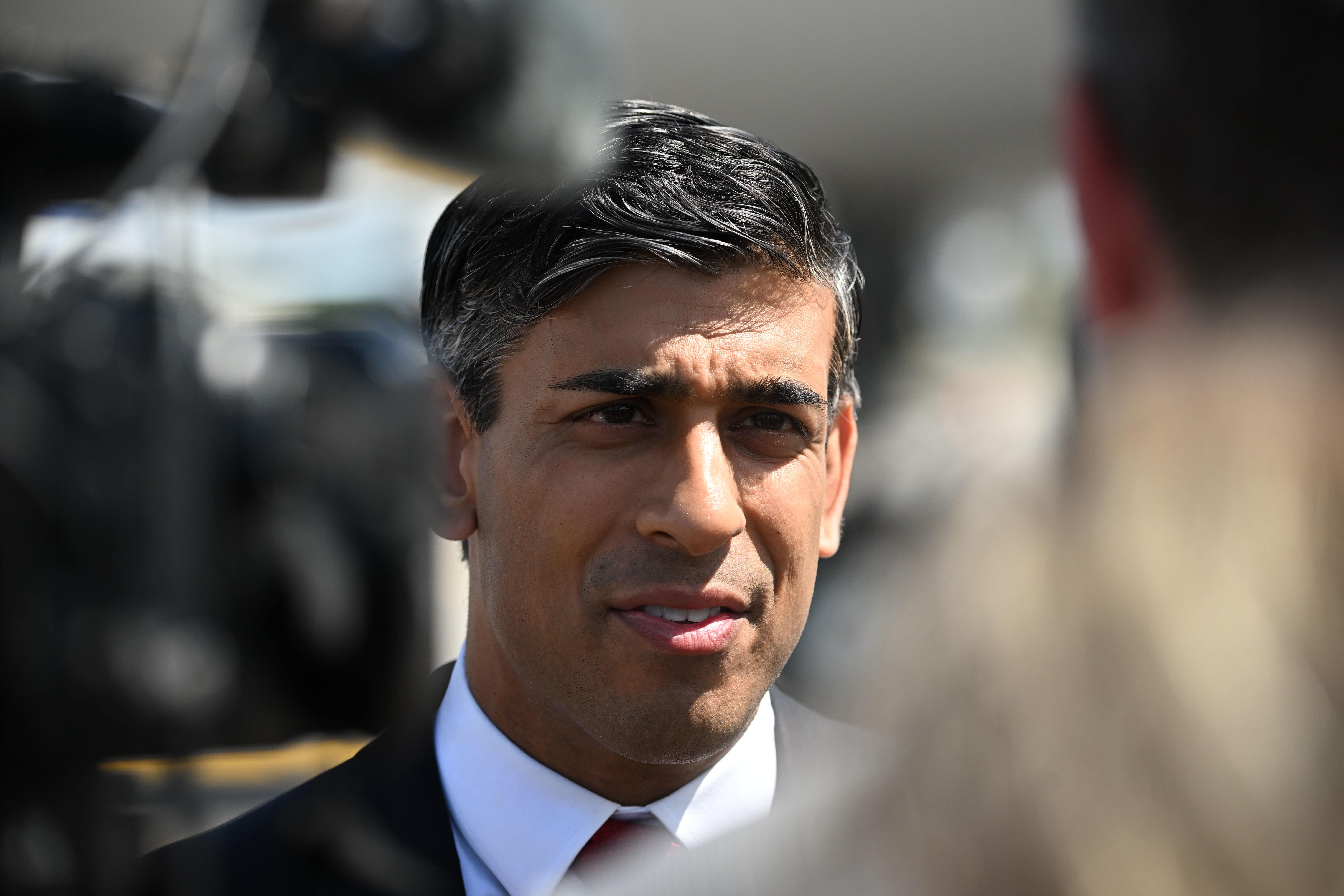A former PM is haunting Rishi Sunak – and this time it’s not Boris!
Johnson’s toxic legacy may still be looming over the prime minister, but now he has another headache caused by a predecessor who can’t stay out of the limelight, writes Andrew Grice


Liz Truss is back on the warpath today, fighting on her favourite territory of how to get economic growth – via tax cuts, of course.
It’s yet another headache for Rishi Sunak and, in a classic case of bad timing for him and good timing for Truss, comes as he plays down the prospect of pre-election tax reductions.
Sunak told journalists en route to the Nato summit in Vilnius that while he wanted to cut taxes, reducing inflation and being responsible with government borrowing is “the overriding economic priority, and that takes precedence over everything else... We are going to make sure that we bring inflation down, and we don't do anything to make the situation worse or last longer".
As chancellor, Sunak warned about the risks of rising inflation before it was fashionable and before the Bank of England had woken up to it. But he made a mistake by becoming prime minister in “owning” what he assumed would be a fairly quick fall in inflation by promising to halve it this year as the first of his five pledges.
Stubbornly high inflation means it is touch and go whether he will hit his target. Sunak now “owns” the continuing problem instead of being able to claim the credit for providing the solution.
Truss has convened a growth commission of 13 international economists, which launched today with a report warning that sluggish UK growth means Britons are £10,000 a year worse off than the average American. The economists told the launch event, at which Truss kept off the platform, that “post-Covid, the UK is one of the few economies where GDP per capita is falling” and that the “growth crisis” offers an “opportunity to reassess”.
Reflecting Truss’ lack of confidence in official forecasts by the Office for Budget Responsibility, the Bank and the Treasury, the commission will use a new model to predict how fiscal and regulatory proposals will affect people’s incomes in five, 10 and 20 years, and propose “pro-competition” reforms.
Although the group will be seen as resuming Truss’ battle against the “anti-growth coalition”, the economists insist they will be non-partisan and will assess Labour as well as Tory policies. It insists the diagnosis of feeble growth is widely accepted and sees its role as helping MPs and ministers to find the right cure.
It is true that Truss is asking the right question. Some allies dare to claim she has been vindicated after mortgage rates rose this week to a level above those after her disastrous mini-Budget, leaving the UK in the worst of all worlds. As one said: “We now find ourselves with higher interest rates and stagnant growth, with none of Liz’s reforms being enacted.”
This is poppycock: if Truss’ calamitous measures had not been abandoned, inflation and interest rates would be even higher today. The cause of Sunak’s problems is inflation and immediate tax cuts would make that worse. Today’s absence of a panic in the bond markets and the much stronger pound (on the expectation of even higher interest rates) shows we are in a different place to last October. With Kwasi Kwarteng at the Treasury, fiscal policy and his £45bn of unfunded tax cuts was pulling in the opposite direction to monetary policy as the Bank increased rates. Today they are aligned, as they must be.
However, some Tory MPs believe the Truss project was right even if her implementation was wrong and rushed. You can say that again. A much bigger group of Tory backbenchers will be appalled by Sunak appearing to rule out tax cuts before next year’s general election.
In fact, he didn’t do that. The door to tax cuts is still ajar – just. On Thursday, the prime minister and Jeremy Hunt will discuss their dilemma over public sector pay rises and will try to leave room for tax reductions by forcing Whitehall departments to fund most of the rises of up to 6.5 per cent recommended by pay review bodies.
That would be wrong, and put services like health and education under even more pressure – in another blow to the Tories’ election prospects. Sunak and Hunt won’t see it like that: tax cuts are viewed as a necessary if not sufficient condition for their party to have any prospect of avoiding an election defeat. As one former minister told me: “No tax cuts would mean the game really was up. He [Sunak] can’t afford that perception to take hold.” This scenario would also provoke an all-out Tory civil war, even with an election imminent.
So we should take Sunak’s playing down tax cuts with a bucket of salt. What his words really mean is that an announcement will be delayed from the autumn statement in November to the Budget next March. By then, inflation should have fallen, and Sunak and Hunt will probably claim the voters’ reward for taking their harsh medicine is 1p off the 20p basic rate of income tax. Never mind the impact on public services; they'll worry about that another day. Or, more likely, leave Labour to clear up their mess.







Join our commenting forum
Join thought-provoking conversations, follow other Independent readers and see their replies
Comments